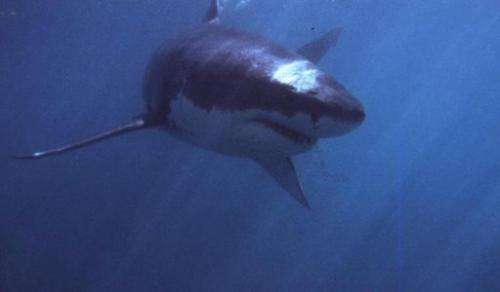Indonesia announces shark, manta ray sanctuary

Indonesia has announced a new shark and manta ray sanctuary, the first to protect the species in the rich marine ecosystem of the Coral Triangle, known as the "Amazon of the ocean".
Environmentalists Wednesday welcomed the creation of the 46,000-square-kilometre (18,000-square-mile) protection zone, in an area at risk from both overfishing and climate change.
The local government in Raja Ampat on the western tip of New Guinea island announced the move this week, issuing local regulations to ban the finning and fishing of sharks in the area, a tourist destination popular with divers.
Rizal Algamar, Indonesia director of the Nature Conservancy, described the regulations in a joint statement with Conservation International as a "breakthrough in policy".
"Scientific evidence states that the value of live sharks and manta rays far outweighs the one-time profit of dead sharks and manta rays, benefiting a growing world-class and increasingly popular marine tourism and dive destination," he said.
Scientists have warned the Coral Triangle, which spreads across a vast area of Southeast Asia's waters, is under threat, with heat-trapping carbon gases blamed for creating acidic seas hostile to much marine life.
Overfishing has also been a problem, but the sanctuary will support existing no-take zones that have helped shark numbers slowly recover.
"Sharks in particular play an important role, as apex predators at the top of the food chain, maintaining fisheries and ecosystem health," the statement said.
The sanctuary is also expected to prevent a drop in manta ray numbers, with the species' gills increasingly used in Asian medicines.
Shark populations are in a rapid and steep decline worldwide, facing intense pressure from fishing and in high demand for shark fin soup.
Up to 73 million sharks are killed annually, mostly for their fins, the statement said. As a result, many shark species have suffered declines greater than 75 percent and in some species up to 90 percent or more.
Indonesia ranks as the world's largest exporter of sharks and rays.
(c) 2013 AFP
















